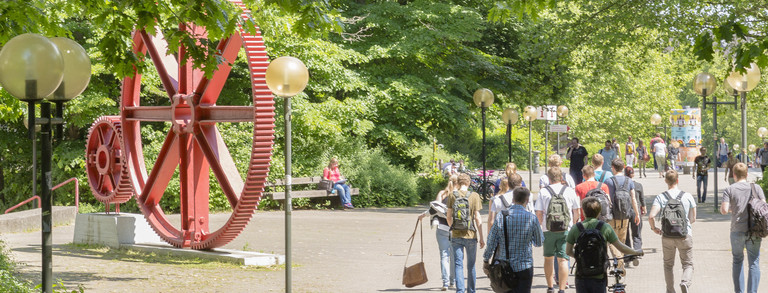Short Portrait of the Institute

Within the broad field of communication technology, research and teaching at the Communication Technology Institute focuses on the challenge of realizing the vision of ubiquitous wireless networking.
Current research projects cover local networks in the industrial, automotive and residential environment for the high requirements on reliability, availability, latency and data rate while maintaining a high density of communicating devices. We contribute to the development of new communication standards and consider them as a valuable basis for the development of innovative solutions for future networks. These networks will enable new applications in the fields of Industry 4.0, Ambient Assisted Living, Smart Energy and Smart Home. In addition to the work on innovative concepts of wireless transmission (based on OFDM and PSSS – Parallel Sequence Spread Spectrum) optical free space transmission using displays and cameras as transmitters and receivers (DaViD – project) is an important topic.
These research topics are also reflected in the institute's offer of courses: Besides the basic lecture on communication technology ("Nachrichtentechnik") there are courses on digital communication technology ("Digitale Übertragungssysteme", with emphasis on channel coding), digital source coding ("Digitale Quellencodierung"), local networks, safe and secure communication technology (“Sichere Kommunikationstechnik”) and image communication technologies and systems ("Bildkommunikation"). Besides theoretical aspects skills like system simulation (in particular MATLAB, OMNeT++, C++ and VHDL) -design and -analysis are taught in practical exercises, seminars and project groups. Therefore, own measurements of e.g. wireless channels or image displaying/recording devices are performed using the institute’s broad equipment. Since the aim of working as an engineer should always be to turn innovative research into practical systems, we develop demonstrators and experimental setups with the intensive participation of our students.



